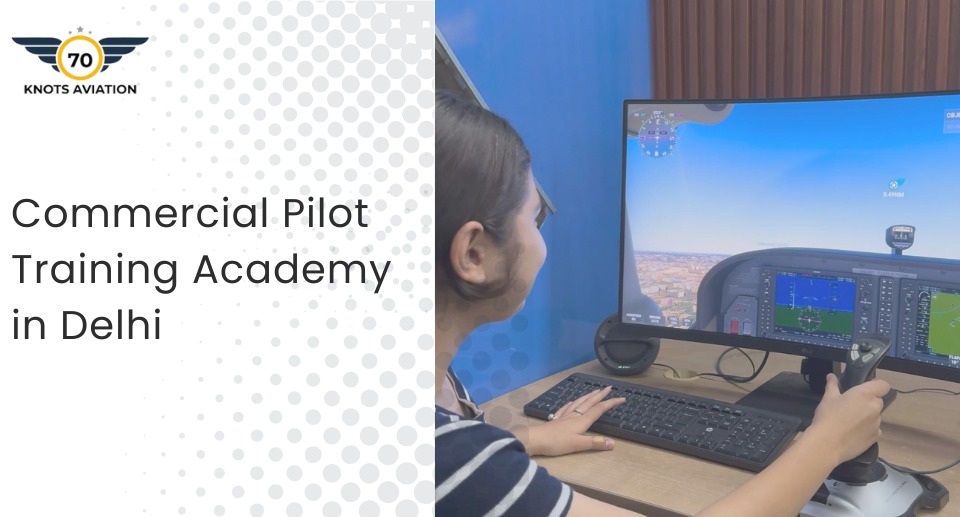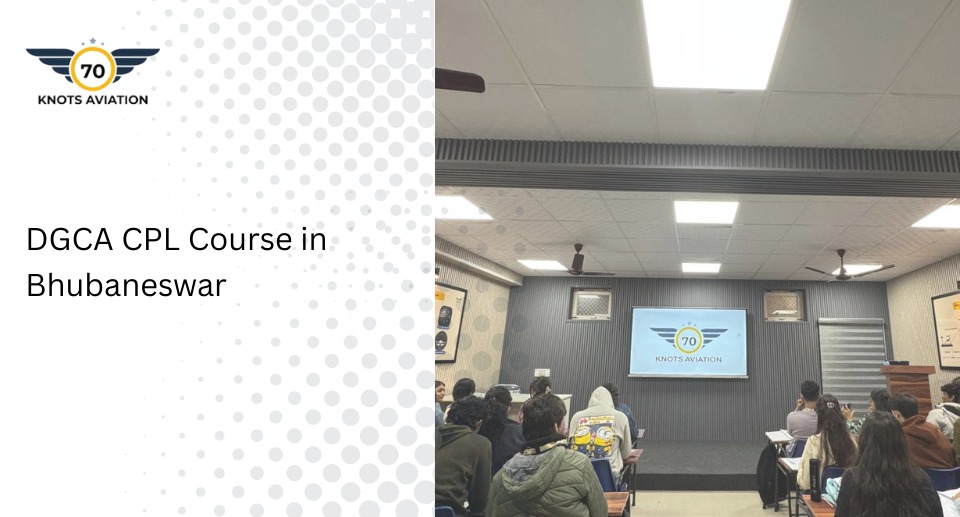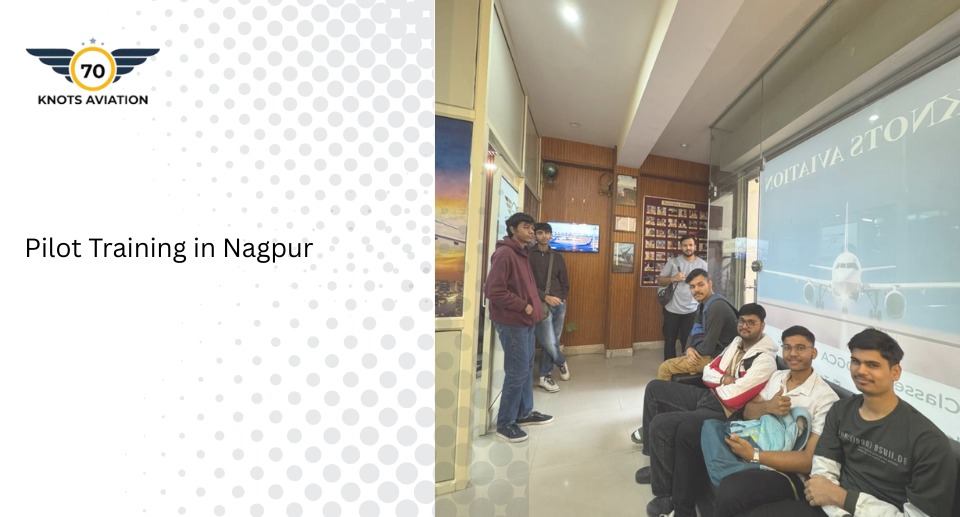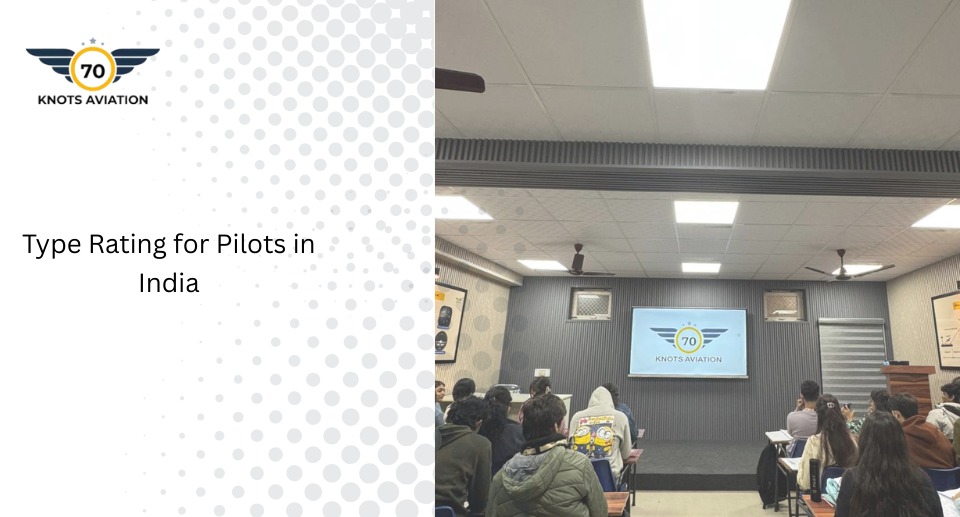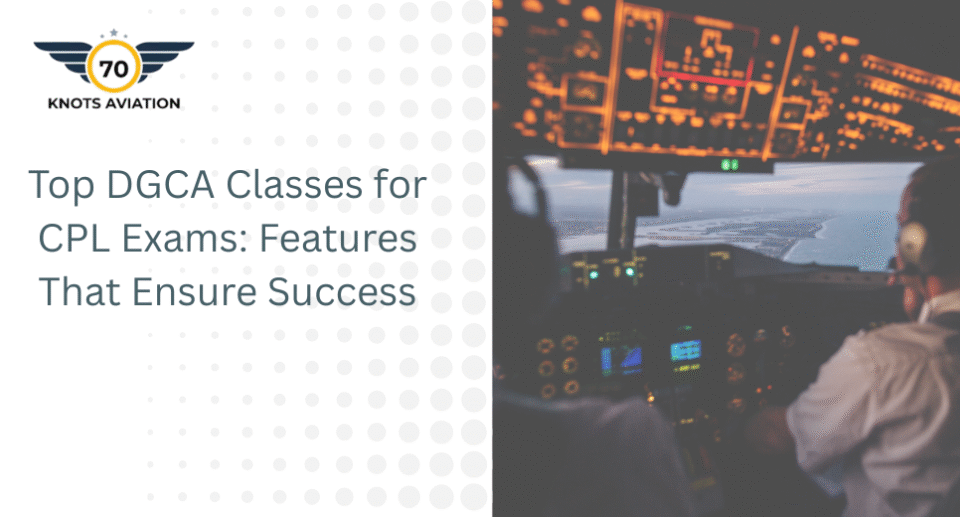India’s Best Aviation Ground School: What to Look For in 2025
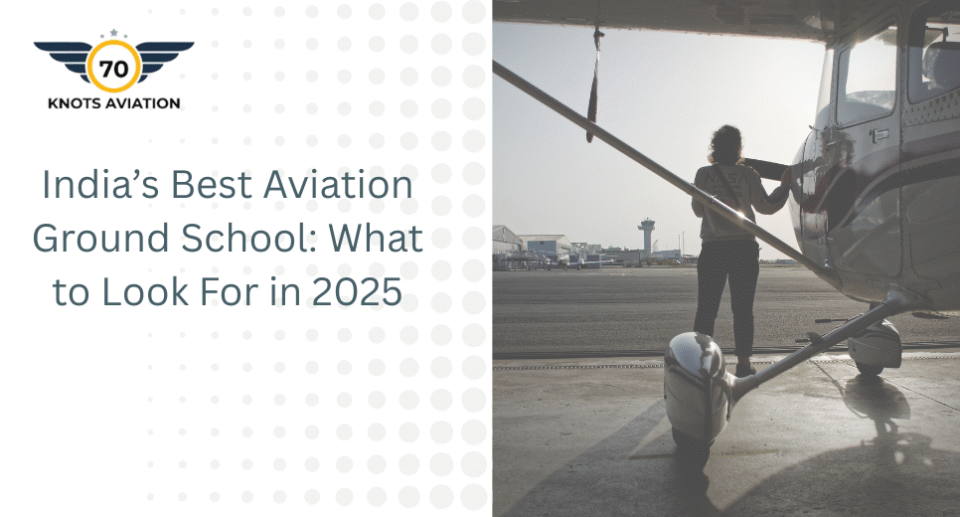
Cruising at 30,000 feet at 600 miles per hour, India’s aviation industry has never looked so good in 2025, and the requirement for top-quality, globally competitive pilots has never been higher. At 70 Knots Aviation, we believe the path to becoming a commercial pilot begins with the experience of the right ground school: one that provides you with a solid foundation of knowledge along with a set of tools for success in your future career. This blog will walk you through key aspects to consider when selecting your aviation ground school this year.
The Role of Aviation Ground Schools in India’s 2025 Aviation Landscape
India is becoming increasingly popular as an international aviation hub. With regional air connectivity routes, new airports getting operational, and expansion of airlines, demand for aviation professionals is at its peak. Ground schools are now much more than textbook academics. Today, they have a key design influence on how tomorrow’s pilots will think, train, and fight.
In 2025, a good ground school is the interface between your love of flying and the ticket to fly. It gives you the necessary theoretical base to tackle the DGCA exams and the confidence of preparation to face the flight training. Finding the best one is not just a decision but an investment in your future as a pilot.
What to Look For in an Aviation Ground School in 2025
A good aviation ground school will have a good mix of academic substance, technical awareness, and real-world preparation. Key Features So, without further ado, here are the features that you should be considering:
DGCA & International Accreditations
This is your first checkpoint. The ground school needs to be approved by the Directorate General of Civil Aviation (DGCA) so that your training is applicable and valid in India. But in a world where people travel internationally more and more frequently, international certifications like these are just nice to have, particularly if you’re planning to live abroad or work abroad later on.
Ours are in conjunction with international quality and are DGCA-approved programs being offered by 70 Knots Aviation. We work with international aviation training centers too in order to develop our students to be competitive in an international arena.
Updated Curriculum with 2025 Standards
The air power curriculum is always changing. Today, in 2025, you can’t just study from old books and follow the same methods. A quality ground school will incorporate the current DGCA syllabus and include recent additions such as NextGen airspace, drone regs, weather forecasting tech, and human factors.
You must find short courses for all the above-mentioned subjects, i.e., air navigation, meteorology, Air Regulation Technical General RTR (A), and there should also be a practical for the same. Our courseware with 70 Knots Aviation is revised every cycle to ensure it reflects the DGCA’s most recent regulations, and our materials are the result of time-tested aviators.
Technology Integration and Simulation Labs
Aviation is a technology-driven industry. Your ground school must be relevant to that. In 2025, highly competitive schools are using flight simulation, AR/VR-based modules, smart classrooms, and online test engines to enrich learning.
Gaining experience learning how to use systems in a cockpit, in particular understanding radar and reading navigation data, and operating them ahead of time on simulators, is a huge advantage for students, not only in exams and tests but also in flight training. Here at 70 Knots Aviation, we provide our students hands-on exposure to simulators from their first week of training because we want them to feel confident right away.
Faculty with Real-World Experience
Who is teaching you is by far the greatest factor in determining the quality of your training. Seek a ground school that is taught by instructors with real-world experience in aviation: former airline pilots, ATC personnel, meteorologists, and aviation engineers.
These aren’t faculty who just teach theory; they share experience, personal flying tales, and decision-making frameworks that you’re not going to find in books. That is the kind of teaching that will develop real pilot thinking in us.
Before signing up, request faculty credentials. All 70 Knots Aviation instructors have had commercial flying hours or hold the highest positions in the aviation industry, meaning our students learn from experienced professionals.
Career Support and Placement Network
The DGCA exams are but one topic. Just as important is what happens next. A quality ground school should provide organized career counseling, job assistance, airline interview preparation, and help with type-rating programs.
Many students become clueless after paper clearing. The right institution isn’t going to allow that. Our placement cell finds top-flight schools and charter, and airline cadet programs to help guarantee you the best start to your career.
Safety, Discipline, and Infrastructure
Your working world will be discipline-driven, and so should be your education. From the daily briefing to the dress code, the attendance policy, and the mock exam, the right school will train you like a pilot from day one.
Also, check the facilities: Are the classrooms new and air-conditioned? Are study materials easily accessible? Do they have a sim room, breakout space, and proper bathroom facilities?
At 70 Knots Aviation, we don’t believe in a discipline plan; rather, we maintain a clean, efficient, and professional campus where discipline is practiced as a habit, not a last resort.
Affordability with Flexible Payment Plans
Training to become a pilot is a huge commitment in terms of money, and although you don’t want to skimp on quality, a good school will be able to offer flexibility so both sides of the equation benefit. Search for transparent fee structures, EMI options, and combo packages including ground and flight training.
The challenge of staying out of the red should not interfere with your workouts. 70 Knots Aviation offers custom payments that make sense, as well as a fair and transparent fee policy so that students and their parents can plan effectively.
Common Mistakes to Avoid When Choosing a Ground School
The list of features matters, but it’s as crucial to know the common mistakes students make. Here’s what not to do when making your choice:
- Pursuing the lowest cost: You pay for what you get. Opting for lower-cost education means more reappearances at exams or wasted time.
- Skipping the campus visits: Visit the campus. Online brochures can be misleading.
- Ignoring batch size: an overcrowded class reduces the personal attention given to you.
- Ignoring post-training services: A good school will continue to care about you and your passing even after your exams are long behind you.
- Falling for fake reviews: Look for true testimonials, engage with current students, and go with your gut.
- Keep in mind: You’re not just signing up for a school; you’re selecting your mentors, your environment, and your future network.
Conclusion
Your key to the sky is the proper aviation ground school in 2025. At 70 Knots Aviation, we take far more than just academics and provide an organized approach to mentorship, modern facilities, and solid career paths. Select wisely, and leave your dreams of flying high in the sky with the very best foundation from day one.

